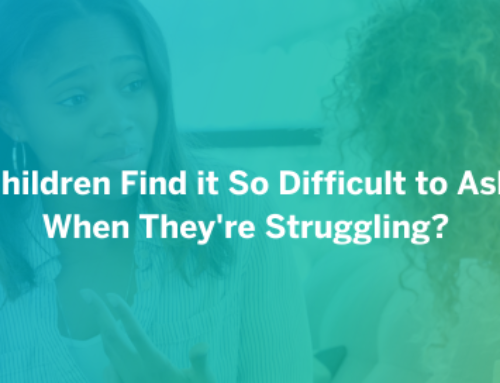
We took a family trip to San Francisco. We had just a few hours left to do one last tourist circuit around Fisherman’s Wharf and all its bustling attractions before heading to the airport to catch our flight home to Florida. Amidst the crowds, my son saw a backpack sporting his favorite San Francisco sports team logo in a store window and begged me to buy it. He was so excited about it that I decided to purchase it. But as soon as we left the store, I turned around; my heart sank in horror as I realized my thirteen-year-old daughter, who had been shuffling along behind us, was nowhere to be found.
Throughout the years, I have heard that story told over and over again by my mother. I was the daughter who got lost in the streets of San Francisco; fortunately, I knew what to do because of the knowledge she passed on to me.
Like it or not, bad things happen, and no matter how hard you try, you cannot stop all challenging incidents from reaching the people you most want to protect in the entire world, your kids. Even the most well-behaved teenager without a game plan can end up in dangerous situations.
One of the most complex parts of parenting is the realization that your job is not to stand guard or shield your children from each problem they encounter but to teach them the skills to handle hardships as they arise. If you are worried about how your teen would conduct themselves in precarious situations and wish you could help them, you can. Here’s how to do it.
1. Teach Them How to Be Mindful
While it would be fantastic to prepare your teen for hardships before they arise, the reality is we can’t predict which one they will encounter. Anything can happen, from being pressured to try harmful substances, a family death, divorce, bullying, or being left stranded in a dangerous area. Although we may be unable to control the external events that will happen to our teens, we can help them learn internal survival skills.
Mindfulness is the body’s response that alerts you to what might be going on in your mind. Practicing mindfulness helps create valuable habits and will, with time, allow them to identify their emotions in advance. This, in turn, will give them power over their impulse reactions and allow them to respond to situations more clearly and decisively.
For example, if a peer presses them to drink alcohol or try a substance, it might make them feel uneasy or fearful. When we react in an anxious state, we tend only to intensify problems. By practicing mindfulness, your teen will have the ability to respond calmly and compassionately and, as a result, make better decisions.
2. Practice a Game Plan
Once your teen has their internal survival skills in practice, it can be a great help to review some typical situations they may encounter. Again, there is no way to tell what obstacles they will have to face, but having conversations with them about the dangers they may face and the consequences of their actions will help give them some guidance on what they can do.
For example, if your teen is starting to want to attend parties with friends, it’s essential that they are aware of the consequences of underage drinking or using illegal substances. Ask them what they would do if the friend that drove them to the party decided to consume alcohol. Listen to them, be open to how they would handle it, and help them devise a plan they could use.
3. Talk About What’s Okay and What’s Not Okay
Opening up discussions with your teen about dangerous situations they may face, like underage drinking, illegal drug use, and sex, will guide them and demonstrate your views on acceptable and unacceptable behavior. Talking about these topics ahead of time will help alert and guide them.
As parents, it can be hard to remember how overwhelming peer pressure can feel for teens. It’s essential to do your homework. Stay on top of what’s happening around them and within their circle of peers. For example, the phenomenon of “sexting,” where teens send suggestive or nude pictures to others using their cell phones, has become a real problem.
If your teen is not aware that this is not acceptable behavior, they may try to brush it off as, “It’s just something that happens.” Parents, this is when you have to take the reins and make sure they understand that this is not okay. Help guide them on handling a situation like this and what steps they can take to prevent it from happening to others.
4. Empower Them to Trust Their Instincts
How often has your gut instinct alerted you that something isn’t right? Never underestimate the power of the inner voice. Another great way to help your teen self-
protect is to make sure you cultivate a space at home for them to listen to their intuition. While gut feelings can be both affirmative or negative, there is no denying it’s the body’s way of telling us something. Helping your teens trust in their internal instincts can be one of the best forms of protection during dangerous situations.
5. Model Help Seeking
Asking for help is an essential skill, but we often avoid it at all costs. Encouraging your teen to ask for help can make all the difference in keeping them safe and getting them out of complicated situations. The best way to teach your teen that it’s okay to ask for help is by practicing what you preach. For example, if you catch a co-worker mistreating another person, taking action and reporting them to human resources can help stop them from repeating these actions.
If your teen sees you taking action, you demonstrate how valuable it is to seek help and respond. Maybe your teen will overhear a teen talking about bringing a weapon to school. Since they saw you take action, they will do the same. Your example could help give them the courage to report what they heard and help save many from danger. Teach your children that asking for help doesn’t mean they can’t handle challenging situations. On the contrary, they are taking action and allowing others to contribute.
Carolina Droze is a LSIS presenter of K-5th programming, freelance writer and copywriter. She is also a mom, wife, surfer, nature enthusiast and a lover of loud music and dancing like she just don’t care.







